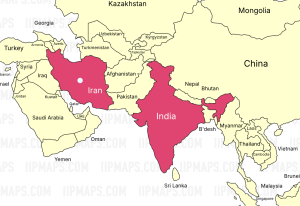A] Introduction
Uniform Civil Code (UCC) refers to a unified set of laws governing marriage, divorce, inheritance, adoption, and related civil matters—applicable to all citizens, irrespective of religion.
The idea of UCC is enshrined in the Constitution as a Directive Principle in Article 44 . However, UCC remains unenforceable until enacted by legislatures.
While advocates see it as essential for gender justice, secularism, and national integration, critics view it as a threat to religious freedom and pluralism. Political polarization has intensified around this question.
The debate intensified, especially after Uttarakhand enacted its own UCC in 2024.
B] Historical and Constitutional Evolution
The topic of UCC was debated extensively in the Constituent Assembly. Dissenting voices primarily came from members belonging to minority communities . They argued that UCC would violate religious freedom.
Proponents like K.M. Munshi and Alladi Ayyar advocated that a uniform code was essential for national unity. Ambedkar proposed a voluntary opt‑in model initially, reassuring minority groups. Article 44 was framed as aspirational, not mandatory, allowing gradual reform.
Post-independence, the focus of personal law reform was on the Hindu community, not on immediate implementation of a UCC. Prime Minister Jawaharlal Nehru and Law Minister Ambedkar spearheaded the Hindu Code Bill. These laws brought uniformity and progressive changes within the Hindu (broadly including Sikhs, Jains, Buddhists) fold, such as banning polygamy and granting women, property rights.
Over subsequent decades, other communities saw partial reforms too. For instance, the Indian Divorce Act (1869) governing Christian marriages was amended in 2001 to make divorce grounds more equal for men and women. The Parsi Marriage and Divorce Act and Special Marriage Act (1954) continued to provide civil marriage options.
However, Muslim personal law remained largely un-codified due to political sensitivities. The Shah Bano episode exemplified the political hesitation to reform Muslim law, let alone impose a uniform code.
C] Judicial Pronouncements and Legal Developments
Indian courts have played a significant role in keeping the Uniform Civil Code debate alive, often in the context of addressing injustices arising from personal laws.
The Supreme Court in Shah Bano case (1985) upheld maintenance rights for a Muslim woman. The verdict framed the UCC in terms of gender justice rather than religious override. It highlighted that personal laws should not deny basic rights to women that are available under secular law.
Subsequent legislation—the Muslim Women (Protection of Rights on Divorce) Act, 1986—nulled the decision, illustrating political resistance.
In Sarla Mudgal (1995), the court declared that Hindu men converting to Islam to practice polygamy were not be granted immunity from the prior bond. This ruling protected the rights of women from being abandoned without recourse.
Justice Kuldeep Singh lamented the delayed implementation of Article 44, noting that codified personal law already covered 80% of citizens (Hindus), and urged legislative action.
The Shayara Bano verdict, often called the triple talaq case, struck down the practice of instant irrevocable talaq in one sitting as unconstitutional. One of the judges emphasized that the constitution obliges the State to secure a UCC and said that it was “an unaddressed constitutional expectation.”
Soon after this case, the Muslim Women (Protection of Rights on Marriage) Act, 2019 was passed, criminalizing instant triple talaq. This indicated a willingness, at least in this instance, to override traditional personal law in favour of a uniform standard of justice.
These cases have built a consistent jurisprudence urging the legislature to enact UCC in the spirit of gender justice and national integration.
D] Socio-Cultural and Religious Dimensions
India has Diversity of Personal Laws.
Hindu laws which broadly cover Sikhs, Jains, Buddhists are codified.
Muslim law remain uncodified and based on Sharia. Christian and Parsi law carry the legacy of British statutes, while tribal/customary laws are protected by constitutional provisions (e.g., Northeast states).
There are certain Issues under current paradigm . For example, polygamy is allowed under Muslim law. There are issues like unequal inheritance for daughters, and lack of legal adoption for Muslims. There are complexities in divorce procedures among Christian and Parsi laws.
UCC also unfolds a debate between cultural autonomy and constitutional morality. Minority groups argue UCC infringes on religious freedom under Article 25 and cultural identity under Article 29. On the other side, reformists argue that personal laws cannot be exempt from the Constitutional values of equality, liberty and dignity.
There is also a powerful gender justice narrative advanced by women’s rights activists across communities. They argue that women often get the short end of the stick under traditional personal laws.
Thus, within each community, there are voices that reject the patriarchal interpretations of personal law and seek either reform or a neutral uniform law. These voices see UCC as a means to uplift women of their community.
A concept often mentioned in this debate is “constitutional nationalism” vs “cultural nationalism”. The Constitution envisions a form of civic nationalism where all citizens are equal under the law, whereas cultural nationalism emphasizes on the distinct heritage of groups. The UCC has been seen by secularists like Nehru, Ambedkar, and later jurists as an expression of civic nationalism – forging unity through common citizenship rights. But given India’s history of communal strife, others caution that pushing too hard for uniformity might actually fuel cultural nationalism.
E] Political Discourse and Federal Challenges
The BJP consistently champions UCC as part of its ideological agenda. It cites Goa’s civil code and Uttarakhand’s 2024 experiment as practical models. Congress declares support in principle but demands consensus and survey-based cautious approach. On the other hand, opposition parties, especially in minority-dominated states, strongly resist UCC, citing cultural minority rights.
Some States have taken their own Initiatives. Goa retains the Portuguese-era Goa Civil Code, a functioning uniform code. It is a widely cited model.
Uttarakhand became the first state to enact its own UCC in 2024-25. The act made monogamy mandatory and provided equal inheritance rights. Live-in relationships need to be registered now, marriage registration has been made mandatory and tribal customs have been registered.
UCC raises questions with regards to the Federal Structure of the country. Personal laws fall under the Concurrent List, both Parliament and state legislatures can legislate.
Typically, major personal laws were enacted by Parliament applying to whole of India (except certain state exceptions). But a state is within its rights to legislate on these if Parliament hasn’t occupied the field fully. Uttarakhand’s law shows a state proactively taking initiative.
While legally permissible, it opens questions: Will we see different versions of UCC in different states? That would undermine the idea of uniformity across India, but might be a stepping stone. The central government could later codify a national UCC that overrides these and brings one uniform law.
Also, states with protected customary laws (e.g., Nagaland, Mizoram) may opt out constitutionally.
F] Comparative and International Perspective
Turkey offers a model of how secularism and civil code can be integrated in a Muslim-majority society. Tunisia too has progressive personal law in an Islamic context.
They enacted secular civil codes (Turkey in 1926; Tunisia in 1956) outlawing polygamy, establishing equality in divorce and inheritance. These reforms were state-driven, top-down reforms in authoritarian contexts and offer lessons on feasibility but not process.
France represents the classic model of a nation-state with strict separation of church and state and a uniform civil law that is entirely secular. Religious law plays no role in legal personal law.
South Africa provides a nuanced case of balancing plural legal systems under a constitutional umbrella of equality. Post-apartheid South Africa crafted a liberal constitution (1996) with strong equality and non-discrimination clauses. However, South Africa is a multi-ethnic society with significant groups practicing customary African law. South Africa did not impose a single unified code in all matters. Instead, it constitutionally recognizes customary law alongside common law, but subject to the Constitution’s Bill of Rights.
The South African model thus illustrates an approach of “unity in diversity” legally.
Israel, on the other hand, comes up as the opposite example – it maintains religious personal laws for Jews, Muslims, Christians, Druze in marriage and divorce. Israel doesn’t have civil marriage – an Israeli couple must marry according to their religious law or go abroad for civil marriage (which Israel then recognizes). This causes difficulties especially for interfaith or secular Israelis.
Thus, Israel is often cited as a warning rather than a model.
These comparative models show that uniformity is feasible, but democratic context and sensitivity matter. India might synthesize a hybrid model—protect identity while enforcing uniform rights.
G] Feasibility Analysis
Implementing a Uniform Civil Code in India is a complex endeavor that must be assessed on multiple fronts.
From a purely legal-constitutional standpoint, Parliament has the power to enact a Uniform Civil Code, and doing so would not per se violate the Constitution – in fact, it would be acting in furtherance of Article 44’s directive.
UCC must be consistent with fundamental rights—unlikely to violate religious freedom or equality if framed to enhance rights. Religious clauses such as polygamy have already been ruled non-essential to religion by courts.
Finally, exemptions may be needed to respect tribal autonomy and protect special states under Articles 371 and Sixth Schedule.
1] Political Feasibility
The political feasibility is arguably the toughest part. As detailed earlier, the issue is polarized. BJP has the political will and Lok Sabha majority; passage in Rajya Sabha might be contested.
There isn’t monolithic data, but some surveys show a majority of Hindus favour a UCC. Muslim and other minorities are largely opposed—unless draft takes their concerns into account. Online polls show many women across communities support equality-based reforms.
Process matters- phased consultative approach enhances legitimacy. While, unilateral imposition risks social unrest. One possible approach could be to release a draft for public consultation, involve minority jurists and civil society, and pilot UCC frameworks in willing states.
2] Administrative Feasibility
The next challenge is administering and enforcing it across the vast and varied country. An administratively sound UCC must be drafted with precision, covering all major areas of personal law.
Training and sensitization of courts and administrative officials is essential. Public awareness campaigns and digital portals for registration would make the process accessible to all.
The transition should be smooth. Existing marriages, pending cases, valid pre‑existing polygamous marriages, inheritance expectations must be dealt sensitively.
Ultimately, asound monitoring and review mechanism should be put in place for mid-course correction.
H] The Way Forward
Instead of a sudden overhaul, the government could pursue a phase-based approach to unify civil laws. First, amend discriminatory provisions in existing personal laws, achieving rights parity before uniform codification.
Then invite optional adoption of model personal codes by communities. Finally, enact a national UCC consolidating these reforms, possibly with a grace period or phased implementation.
It is imperative to involve stakeholders from all sections in the process. The government and Law Commission should engage with community leaders and organizations, form expert committees in which include scholars of different personal laws, judges, jurists (including those from minority communities), to help draft the UCC. Finally just as the Law Commission solicited views, the drafting process can include publishing a draft for public comment.
The focus should be gender justice and equality. Citizens should be educated about new rights and processes through legal aid and literacy programs.
Encourage additional states to pilot UCC (following Uttarakhand and Goa), refine the model. Strengthen civil alternatives like the Special Marriage Act (improving its accessibility) as a voluntary UCC model.
The feasibility of a UCC in India is not just a legal or technical question, but a test of India’s maturity as a nation. It asks whether we can transcend sectarian apprehensions to embrace a shared civic identity, without forsaking the pluralism that enriches us.



